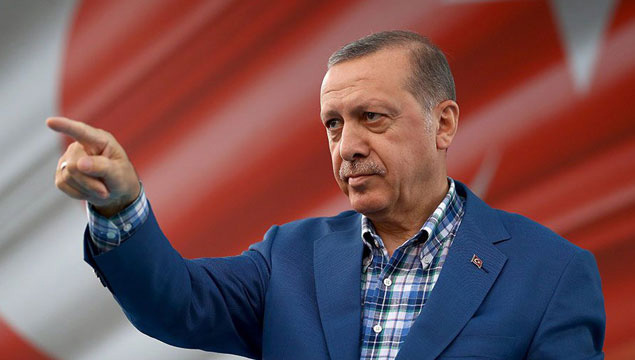President Recep Tayyip Erdoğan on Friday said Türkiye had foiled what he said were traps that targeted his country through global financial instruments, also touting the government’s new economic program.
“With the mechanisms and measures we have created, we have thwarted the traps set up before our country through global financial instruments,” Erdoğan told the Economic Transformation and New Paradigms Summit in Istanbul.
The president highlighted the government’s new economic program, dubbed Türkiye Economy Model, which was unveiled last year. The program prioritizes low-interest rates to boost exports, production and investments, aiming to lower inflation and flip the country’s chronic current account deficits to a surplus.
Every global crisis has confirmed how Türkiye’s economic approaches, once seen as “going against the grain,” are correct, realistic and healthy, Erdoğan suggested.
Türkiye has created a new path by analyzing the developments, opportunities, and challenges in the world and its region in the best way possible, he said.
“I would like to openly admit that the unfair, unlawful, and unjust political and economic sanctions against our country compelled us to look for this path,” he noted. “We decoupled our economic policy to free ourselves from these traps. We have created our own unique economic model.”
While doing this, Türkiye has never broken away from global and local realities, the magnificent accumulation of economic theories, and centuries-old rich experiences, he said.
“We have proved that we are moving on the right path with the resilience we have demonstrated in the face of the global economic crisis, which started with the pandemic and expanded with the war,” Erdoğan added.
He said the world is trying to understand and adapt to the new challenges brought by the pandemic and Ukraine war but that Türkiye already has experience with these challenges.
In line with the new economic model, the Turkish central bank cut its policy rate by 200 basis points to 12% in the last two months, surprising markets after inflation surged to a fresh 24-year high in August.
The bank had embarked on a rate-cutting cycle more than a year ago as it lowered its one-week repo rate by 500 basis points to 14%, where it had left it steady in the first seven months of this year.
Erdoğan on Thursday reiterated his strong opposition to high-interest rates, saying he had advised the central bank to lower its key policy rate further at its upcoming meetings.
The remarks came a day after he said he expects the central bank’s monetary policy committee to deliver another cut to its one-week repo rate in October and bring it down to single digits by year-end.
Erdoğan is known for opposing higher borrowing costs, which he says only makes “the rich richer and the poor poorer.” He often calls high-interest rates the “mother of all evil.”
Higher interest rates make it more expensive for households and businesses to borrow money.
The new economic program seeks to help lower inflation, which topped 80% last month, driven mainly by soaring food and energy prices, which rocketed following Russia’s invasion of Ukraine.
Erdoğan stressed the country’s capability to bring down the soaring consumer prices.
“It may surprise some that our inflation rate has risen to relatively high levels. However, we are a country that also has the ability to reduce the same inflation at a speed that will surprise them even more,” Erdoğan said.
“We’ve been through this in the past, and then we lowered it (inflation).”
While the world suffered negative growth rates and even recession, Türkiye has continued to grow thanks to its new economic program, Erdoğan noted.
The Turkish economy expanded by a better-than-expected 7.6% year-over-year in the second quarter on strong domestic demand and exports. The rate made Türkiye the second-fastest growing economy in the G-20.
The country’s GDP had expanded by 7.5% annually in the second quarter. Last year, the economy bounced back strongly from the COVID-19 pandemic and grew by 11.4%, its highest rate in a decade.
